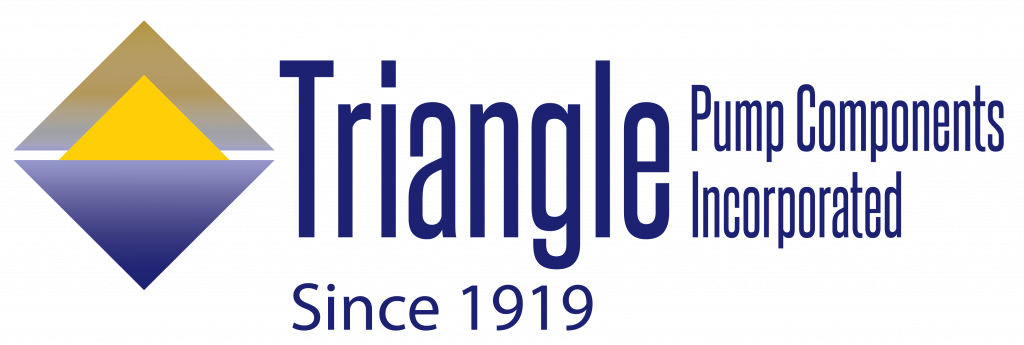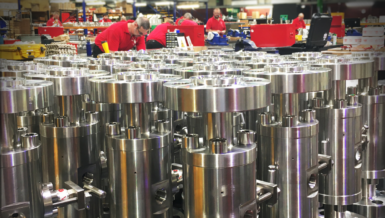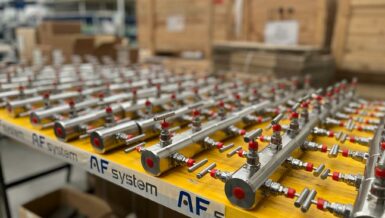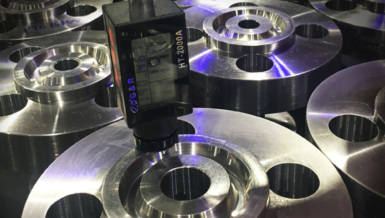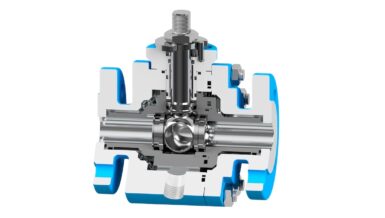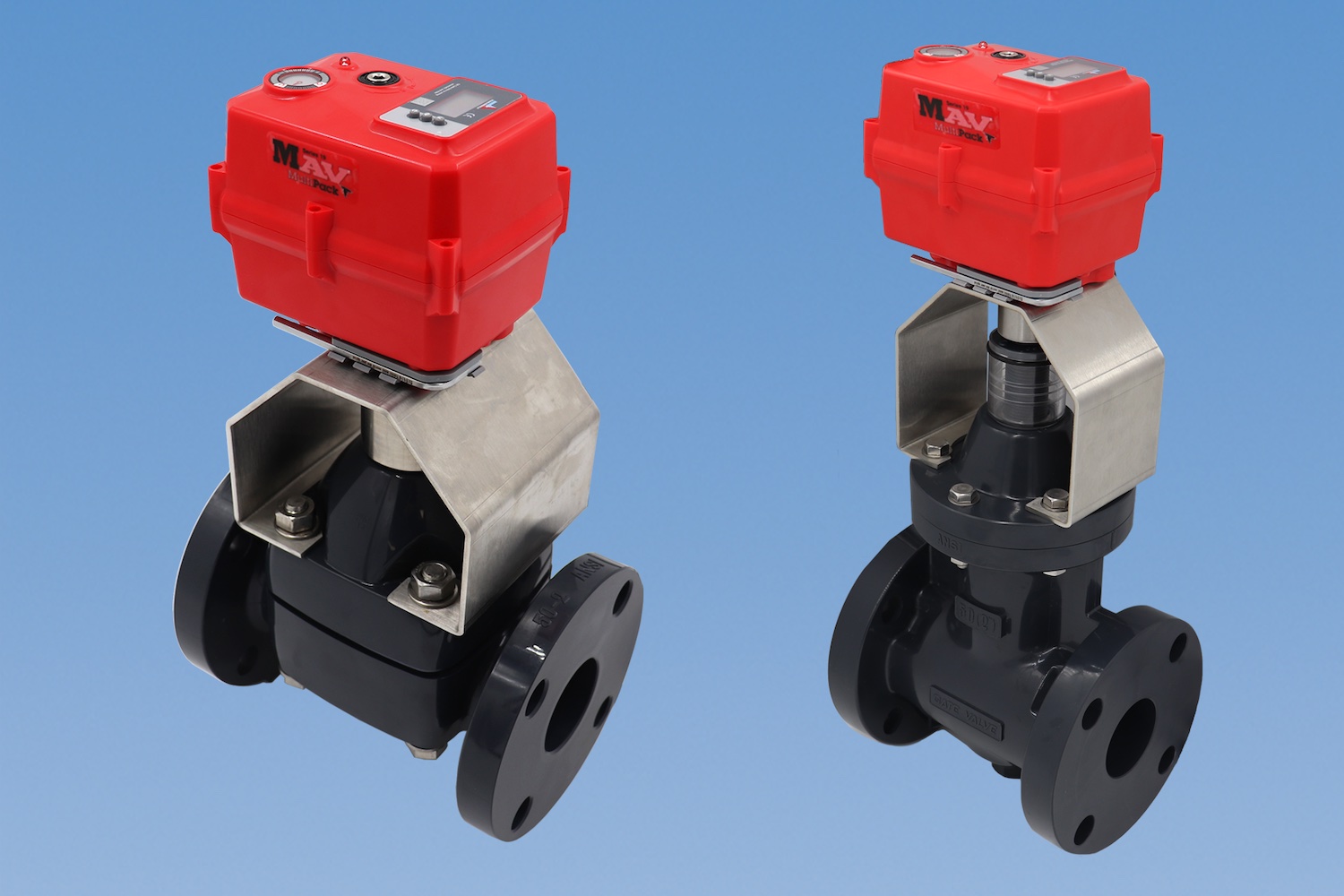Pump owners require efficient and robust operation in challenging conditions, as downtime or pump failure can be costly. It is critical that the workhorse elements of the pump — the valves — operate for prolonged periods without degrading. Issues such as reduced inlet pressure, acceleration pulsations, cavitation and fractional loss of liquid are avoided if the valve operates reliably.
The WG Sphera series valves are built to last. The cage, seat and valve members are constructed from 316 and hardened 17-4 stainless steel for use in a wide array of fluid media. The springs are an Inconel alloy which increases the operational longevity of the valve. The result is fewer maintenance intervals, longer production intervals and greater overall output.
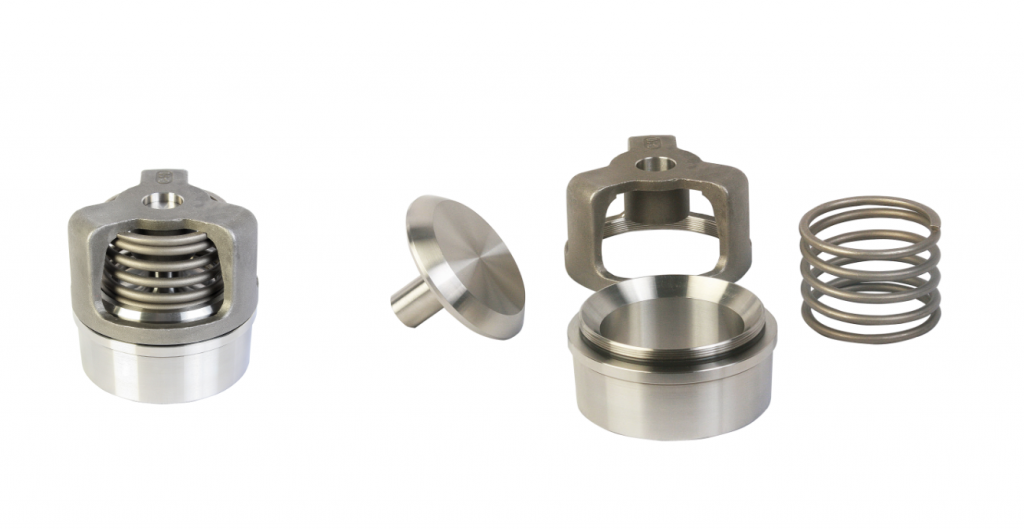
Additionally, an efficient, low-cost valve pays off at the time of purchase and over the lifetime of the pump. The newly introduced WG Sphera series of stem-guided, optional single or dual spring, spherical profile pump valves from Triangle Pump Components Inc. (TPCI) are a robust, efficient and reliable solution for pump maintenance at an affordable cost.
Spherical Valves for a Wide Variety of Pumps
Reciprocating pumps in the current market are often operating at higher RPM and varying suction pressures as determined by consumer demand, system limitations and to improve process efficiency. This requires the use of a valve that can operate efficiently under demanding conditions found in manufacturing sectors and is still able to perform adequately under changing conditions such as those seen in the oilfield. TPCI offers 3 valve configurations to meet this need:
- A low suction pressure (2 POSIVA) configuration for use with less than adequate suction conditions.
- A standard suction pressure (4 POSIVA) configuration for use under normal suction conditions.
- And a high speed (6 POSIVA) configuration for improved efficiency during operation at higher RPMs.
- Additional configurations can be accommodated to suit the specific suction or discharge requirements of your application.
POSIVA is an acronym for pounds per square inch of valve area. This refers to the spring load applied to the valve member when the valve is in the closed position. POSIVA is directly proportional to the cracking pressure of the valve and is a significant factor for valve operation in relation to variance in pressure and pump RPM in different systems. One size does not always fit all.
Low Suction Pressure Systems
In systems with less than optimal suction pressure, it is common for the valve to open later than needed for optimal performance during the suction cycle. This opening delay reduces the volume of fluid transferred into and then out of the pump. The end result is an overall decrease in the volumetric efficiency of the pump. Under these conditions it is important to mitigate the impact of the slow opening valve. TPCI offers a single spring, lightly loaded configuration to improve valve performance in low suction pressure systems. By reducing the POSIVA to 2, excess spring pressure in the valve is removed so the valve is able to open earlier. This minimizes volumetric loss due to low suction pressure and improves volumetric efficiency.
Normal RPM, Normal Suction Pressure Systems
Reciprocating pump operation under OEM recommended piping and suction conditions are typically of no consequence. TPCI offers a single spring standard load configuration for use in applications where suction pressure is adequate. Under these ideal conditions a standard spring load of 4 POSIVA is sufficient for optimal performance.
High RPM Operation
In high RPM applications, the extreme cycle times do not typically impact the pump at the suction end. What typically occurs is a delay in the closing of the discharge valve in relation to the position of the plunger. This closing delay results in a momentary decrease in the discharge pressure for the given chamber and reduces overall fluid transfer. The occurrence is directly proportional to pump RPM and the viscosity of the medium being transferred. To combat this effect, TPCI offers a dual spring configuration in which the POSIVA has been increased to 6. The increase in the spring load increases the closing time of the valve and again results in better volumetric efficiency during high RPM operation.
Customer Experiences
Initial customer experiences with the new spherical valves have been positive, and demonstrate durability and efficiency.
In one test, a customer installed the WG Sphera metal-to-metal 10 and 11 series 316 stainless steel spherical valves in a National J-165L plunger pump using 2.75 in. plungers. The pump produced over 3,147 B/D of fresh water at close to 240 rpm, operating every day for 18 months. After this period, the valves were removed and inspected — both the suction and discharge valves had sufficient durability to run much longer. The customer normally uses stainless steel plate valves with Delrin discs, which need service after only nine to ten months of operation. The spherical valves provided more than double the lifetime of the previous valves.
In another test, a customer installed WG Sphera 10 series 316 stainless steel spherical valves with an inner Inconel 600 spring in a Weatherford® W165-5L triplex plunger pump using 2.75 in. plungers. The pump is used for oilfield salt water disposal and operates at 350 rpm with a temperature range between 60° F to 100° F. When the valves were removed and inspected after nine months of service, the wear was minimal considering the harsh conditions. Previously used abrasion-resistant valves had a typical lifespan of just three to four months.
A current test involves the installation of the WG Sphera metal-to-metal 8 series 17-4 stainless steel spherical valves in a National 165T-5M plunger pump. It is producing 2,500 to 2,700 B/D of salt water disposal with a pumping pressure of 1,750 psi. The valves, inspected after six months of operation, “looked great” according to the customer and will be checked again in another 6 months. Its predecessors lasted only three to four months before showing extensive stem wear.
Conclusion
The new spherical valves from Triangle Pump Components Inc. provide a low-cost, robust solution for a wide range of pump systems from most manufacturers. To find out more about TPCI’s new WG Sphera series of stem-guided, optional single or dual spring, spherical profile pump valves, visit their website.



